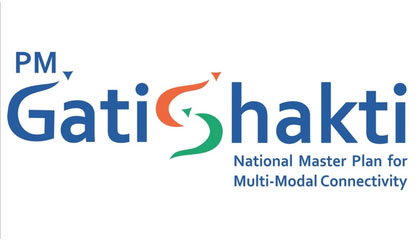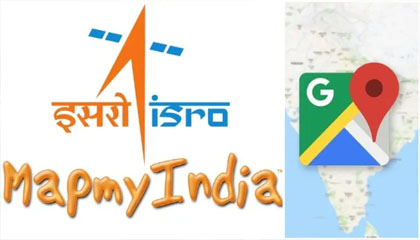Jan hai to Jahaan Hai
“HEALTH ASSURANCE IS NOT A SCHEME. IT IS ABOUT ENSURING THAT EVERY RUPEE SPENT ON HEALTH IS WELL SPENT; THAT EVERY CITIZEN HAS ACCESS TO PROPER HEALTHCARE”
While both planned and unexpected medical expenditure was an additional burden for all under the previous administrations, it was the low-income households that suffered the major brunt. Thanks to programmes such as the flagship AB PM-JAY scheme that ensures universal health coverage to crores of poor families and the Ayushman Bharat Digital Mission that is revolutionising healthcare in India through digitization of health records via Ayushman Bharat Health Accounts (ABHAs), medical needs are met, and unfathomable fears around expenses, mitigated.
The government’s far-sighted approach towards healthcare is not an isolated strategy. Think back to COVID-19; India began implementing grave measures for the containment of the pandemic much earlier than the expected trajectory. Be it “do gaj doori” or mask mandates, or lockdowns, we were so well prepared that in April 2020, India had already set up a vaccine task force. Eventually, by administering over 220 crore vaccine doses, as well as exporting them to the world – Vaccine Maitri – we emerged as an exemplary roadmap for many other countries.
Not just during the pandemic, future-proofing India’s healthcare ecosystem, be it through the government’s bold decision replacing the Medical Council of India with the National Medical Commission thus eliminating corruption, or the setting up of integrated public health labs across districts, or giving an impetus to education in medicine (such as the first ever AIIMS in the Northeast in Assam), over the last nine years, this government has followed an extremely comprehensive and visionary approach.
Of course, this extends to healthcare being made available digitally. Ayushman Bharat Digital Health Mission (ABDHM) which includes CoWIN and Aarogya Setu is a shining example of the power of tech in healthcare, or healthtech, becoming a viable tool for quality. ABDM facilitates evidence-based decision making for effective health interventions.
Pradhan Mantri Bhartiya Janaushadhi Pariyojana (PMBJP) that makes quality generic medicines available at affordable prices through Pradhan Mantri Bhartiya Janaushadhi Kendras (PMBJKs) is another great example of how the ‘complete coverage’ approach informs every health policy. Today, over 9000 Jan Aushadhi Kendras are providing quality generic medicines at affordable prices to citizens. At the Jan Aushadhi Kendras OTC products can be purchased without a prescription and they sell close to 1800 drugs and 280 surgical instruments. The most significant draw though is that the prices of medicines are 50-90% cheaper than similar branded medicines sold elsewhere in the market. The AMRIT pharmacies, similarly, sell more than over 5000 drugs, stents, implants, surgical disposables and other consumables at up to 60% discounts. This covers major diseases such as oncology and cariology.
The Gati Shakti Master Plan, introduced by PM Modi on 13 October 2021, stands as a significant undertaking that aims to enhance collaboration among various ministries, states, and departments.
Acknowledging the pivotal role of port infrastructure in driving economic growth, the Modi government has undertaken ambitious endeavours to enhance and modernise India's ports.
Under the PM Gati Shakti National Master Plan For Connectivity, the Indian Government has introduced a novel digital tool aimed at addressing the challenges of project delays
Over the past years, the government has successfully launched 15 Vande Bharat trains, with plans to manufacture an additional 400 Vande Bharat express trains in the next three years
In a significant move, the government demonstrated its boldness in the budget by raising the capital investment outlay to Rs 7.5 lakh crores.
Holistic Healthcare for Healthy and Prosperous India

220 crore+
vaccine doses
administered in the
world’s largest
voluntary
vaccination drive
38 crore+
Ayushman Bharat Health Accounts (ABHA) created
15
new AIIMS and
225
medical colleges being added
220 crore+
vaccine doses administered in the world’s largest voluntary
vaccination drive
3.9 crore+
pregnant women received medical care under PM Surakshit Matritva Abhiyan
147 crore+
cumulative footfalls at over 1.5 lakh+ AB-Health and Wellness Centres
9.55 lakh+
Tuberculosis patients have now been adopted by Ni-Kshay Mitras
9,304
Janaushadhi Kendras and 230+ AMRIT Pharmacies for Affordable medicines
5.65 crore+
mothers and children protected by Mission Indradhanush
57 Nursing
colleges and
training institutes
are being set up in
augmenting
overall nursing
seats, ensuring
quality and
affordability of
nursing education.
11.29 crore
Teleconsultations
provided through
e-Sanjeevani
platform making
India use
technology for
accessible
healthcare.
With around
Rs. 75,000 crore
saved through
Janaushadhi
Kendras and
AB-PMJAY
making health
care universal
and affordable.
220 crore+ doses of
COVID-19
vaccines
administered so
far becomes the
world’s largest
voluntary
vaccination drive
proving India’s
capabilities.
4.81 crore admissions
covered with
Ayushman Bharat
making AB-PMJAY
world’s largest
government-funded
health insurance
scheme
India becomes 2nd
largest exporter
for alternate
medicine with a
market size of
USD 18 billion+
38 Crore+
Ayushman Bharat
Health Accounts
(ABHA) creating
India’s digital
health ecosystem.
4.45 crore children
and 1 Crores
+pregnant women
vaccinated under
Mission
Indradhanush by
protecting mother
and child.
177 countries
co-sponsored
India’s resolution
in the UN to
observe 21st June
as the
International Day
of Yoga spreading
the message of
health.
Participation of women
in Higher Secondary
stood at 1.57 crore in
2014-15
Participation of women
in Higher Secondary
stood at 1.57 crore in
2014-15
Participation of women
in Higher Secondary
stood at 1.57 crore in
2014-15
Participation of women
in Higher Secondary
stood at 1.57 crore in
2014-15
Participation of women
in Higher Secondary
stood at 1.57 crore in
2014-15
















